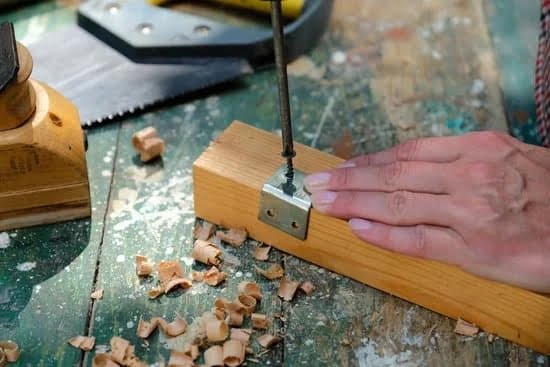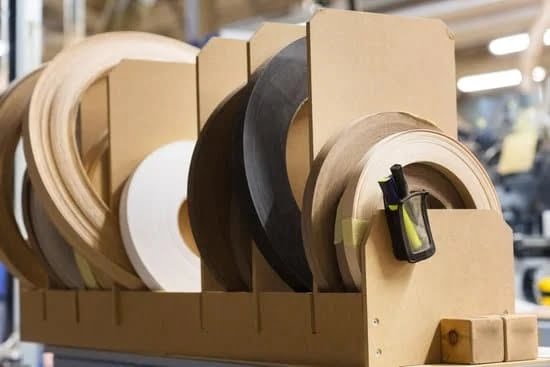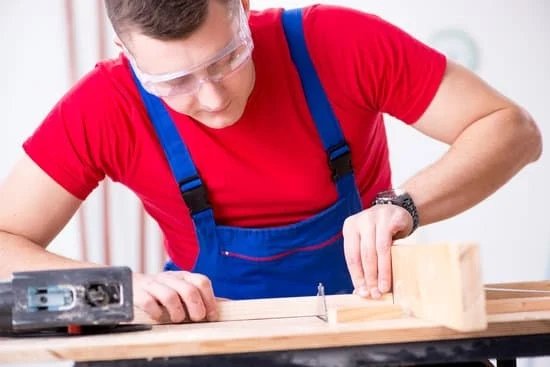Are you passionate about woodworking and looking to expand your tool collection? Understanding the basics of woodworking tools is essential for every woodworker, whether you’re a beginner or an experienced craftsman. From hand tools to power tools, specialty tools to safety gear, knowing what are the best woodworking tools can make a significant difference in the quality of your work and overall experience in the workshop.
When it comes to woodworking, having the right tools at your disposal is crucial for creating masterful pieces. In this article, we’ll explore the various categories of woodworking tools, including essential hand tools that every woodworker should have, game-changing power tools that can take your work to the next level, specialty tools designed for specific projects, and valuable tips on tool maintenance and safety gear.
Whether you’re just starting or looking to upgrade your workshop, understanding the basics of woodworking tools is fundamental for success in this craft.
From measuring and cutting to shaping and finishing, having a good understanding of woodworking tools will not only enhance your skills but also improve the efficiency and precision of your work. So let’s dive into the world of woodworking tools and discover what are the best options for your skill level and needs.
Essential Hand Tools
Woodworking hand tools are essential for every woodworker, whether you are a beginner or an experienced craftsman. These tools allow woodworkers to perform precise and intricate tasks that may not be achievable with power tools alone.
Some of the best woodworking hand tools that every woodworker should have in their arsenal include measuring tools such as tape measures, squares, and rulers; cutting tools like chisels, hand saws, and hand planes; shaping tools such as rasps and files; and fastening tools like hammers, screwdrivers, and clamps.
Measuring tools are crucial for ensuring accurate dimensions and angles in woodworking projects. Squares help in marking straight lines and checking the accuracy of angles, while tape measures and rulers are used for taking precise measurements. Cutting tools like chisels are used for carving out wood, hand saws for cutting through wood pieces, and hand planes for smoothing surfaces.
Shaping tools such as rasps and files help in refining edges and curves. Fastening tools like hammers are used to drive nails into the wood, screwdrivers for inserting screws, and clamps for holding pieces together while the glue dries.
It is important to invest in high-quality hand tools as they can last a lifetime if well-maintained. Proper maintenance includes keeping the blades sharp, cleaning off any sawdust or debris after use, lubricating moving parts regularly, and storing them in a dry environment to prevent rust or corrosion. By choosing the right hand tools and maintaining them properly, woodworkers can create beautiful and durable woodworking projects with ease.
| Woodworking Hand Tools | Description |
|---|---|
| Chisels | Used for carving out wood |
| Hand Saws | For cutting through wood pieces |
| Tape Measures | For taking precise measurements |
| Squares | Marking straight lines and checking angle accuracy |
Power Tools
When it comes to woodworking, power tools have revolutionized the way woodworkers approach their projects. These tools not only speed up the process but also make it easier to achieve precise and professional-looking results. If you’re wondering what are the best woodworking tools that fall into this category, look no further than these game-changers:
- Power Drill: A versatile tool that can be used for drilling holes, driving screws, and even sanding when equipped with the right attachment.
- Orbital Sander: Perfect for smoothing out rough surfaces and achieving a flawless finish on your woodwork.
- Table Saw: An essential tool for making straight and accurate cuts, whether you’re working with large sheets of plywood or smaller stock.
- Router: Ideal for shaping edges, creating joints, and carving intricate designs in your wood projects.
Investing in high-quality power tools can significantly enhance your woodworking experience and take your craftsmanship to the next level. With the right power tools at your disposal, you’ll be able to tackle a wide range of projects with ease and efficiency.
Whether you’re a beginner or a seasoned woodworker, having a comprehensive collection of power tools is key to expanding your capabilities and producing top-notch results. When considering what are the best woodworking tools to add to your arsenal, prioritize those that will allow you to work more effectively and achieve greater precision in your craft.
Specialty Tools
When it comes to woodworking, having the right specialty tools can make all the difference in the outcome of your projects. These unique and effective tools are designed for specific tasks and can help you achieve precision and quality in your work. Whether you’re a beginner or an experienced woodworker, having a few specialty tools in your collection can greatly expand your capabilities.
Here are some of the best specialty woodworking tools that every woodworker should consider adding to their arsenal:
- Dovetail Jig: This tool is essential for creating strong and decorative joints, commonly used in cabinetry and furniture making.
- Biscuit Joiner: Perfect for creating strong joints for edge-to-edge connections, this tool is a game-changer for many woodworking projects.
- Router Table: This tool allows for precise shaping, cutting, and edging, making it a versatile addition to any woodworker’s workshop.
These specialty tools are just a few examples of the many options available to woodworkers. Depending on the type of projects you frequently work on, there are countless other specialty tools that can help you achieve amazing results.
In addition to these specific woodworking tools listed above, other specialty tools include coping saws, spokeshaves and chisels that come handy when working on intricate woodworking projects requiring special care and precision. Each of these specialty tools plays an important role when it comes to enhancing both skill levels and the quality of any given project we set our hearts out to create.
Tool Maintenance
Why Tool Maintenance Is Important
Proper tool maintenance is essential in ensuring the longevity and performance of your woodworking tools. Regular maintenance not only prevents wear and tear but also ensures that your tools remain safe to use. Dull blades, rusty surfaces, and malfunctioning parts can be dangerous and compromise the quality of your work. By keeping your tools in top condition, you not only extend their lifespan but also save money in the long run by avoiding costly repairs or replacements.
Basic Tool Maintenance Tips
One of the most important aspects of tool maintenance is keeping them clean and free from debris. After every use, it’s important to wipe down your hand tools with a clean cloth and store them in a dry place to prevent rusting. Power tools should also be cleaned regularly, paying special attention to air vents and moving parts. Additionally, sharpening hand tool blades and replacing worn parts on power tools are essential for maintaining their effectiveness.
Investing in Quality Maintenance Tools
To keep your woodworking tools in top condition, it’s important to invest in quality maintenance tools such as whetstones, sharpening jigs, honing guides, rust prevention solutions, lubricants, and cleaning brushes. These tools can help you maintain the sharpness of blades, prevent rust accumulation, and ensure that all moving parts are well-lubricated. By having the right maintenance tools on hand, you can easily uphold the performance and quality of your woodworking arsenal.
Safety Gear
Woodworking is a rewarding hobby and profession, but it is crucial to prioritize safety when working with powerful tools and sharp materials. Investing in the right safety gear is essential for protecting yourself while enjoying your craft. Whether you are a beginner or an experienced woodworker, having the proper safety equipment can prevent accidents and injuries.
Protective Eyewear
One of the most basic pieces of safety gear that every woodworker should have is protective eyewear. When working with wood, there is always a risk of flying debris and sawdust, which can cause eye injuries if not properly protected. Safety glasses or goggles with side shields provide the necessary protection against these hazards.
Hearing Protection
Woodworking involves using power tools that produce loud noises, such as table saws, routers, and planers. Prolonged exposure to high levels of noise can lead to hearing damage over time. To protect your ears, invest in quality earmuffs or earplugs that can significantly reduce the risk of hearing loss while working in your workshop.
Respiratory Protection
Working with wood often produces fine particles and dust that can be harmful to your respiratory system if inhaled. Using a respirator or dust mask is essential for protecting yourself from airborne particles and minimizing the risk of developing respiratory issues. It is important to choose a respirator that is approved for woodworking applications and fits comfortably to ensure proper protection.
Upgrading Your Workshop
When it comes to woodworking, having the right tools is only part of the equation. Creating a conducive working environment in your workshop is essential for a smooth and efficient woodworking experience. Whether you are a seasoned woodworker or just starting out, upgrading your workshop can make a world of difference in the quality of your projects.
One key aspect of upgrading your workshop is investing in proper workbenches and storage solutions. A sturdy workbench with ample workspace and built-in storage can greatly improve organization and productivity. Shelves, cabinets, and tool chests can help keep your tools and supplies organized and easily accessible, reducing clutter and saving time during projects.
Another important consideration when upgrading your workshop is lighting. Good lighting is crucial for precision work, especially when it comes to measuring, cutting, and assembling wood pieces. Natural lighting is ideal, but if that’s not available, investing in bright LED lights or task lighting can help ensure that you have adequate visibility while working on your projects.
In addition to workbenches, storage solutions, and lighting, ventilation is also a crucial factor in creating a conducive working environment. Woodworking involves the use of various chemicals and materials that may produce fumes or dust particles. Proper ventilation systems or even simply opening windows can help maintain good air quality in your workshop and ensure a healthier working space.
| Workshop Upgrade | Importance |
|---|---|
| Proper Workbenches and Storage | Improves organization and productivity |
| Good Lighting | Crucial for precision work |
| Ventilation | Maintains good air quality for healthier working space |
Conclusion
In conclusion, when it comes to woodworking, having the right tools can make all the difference in the quality of your work and the satisfaction you derive from the process. As we’ve discussed, there is a wide range of hand tools, power tools, specialty tools, and safety gear available to woodworkers. The best woodworking tools for you will depend on your skill level and the specific needs of your projects.
Whether you’re just starting out or have been honing your craft for years, it’s important to invest in high-quality tools that will last and perform well. Essential hand tools such as chisels, saws, and planes are a must-have for every woodworker, providing precision and control in shaping and finishing wood. Power tools like a table saw, router, or power drill can be game-changers in terms of efficiency and capability.
Specialty tools cater to specific needs such as joinery, carving, or turning, so it’s worth considering these additions as your skills and projects evolve. Lastly, don’t forget about the importance of maintaining your tools and investing in safety gear to protect yourself while enjoying your craft. By choosing the best woodworking tools for your skill level and needs, you’ll not only produce better work but also enhance your overall woodworking experience.
Frequently Asked Questions
What Is the Most Important Tool for Woodworking?
The most important tool for woodworking is arguably the chisel. It is essential for cutting, shaping, and carving wood, making it a versatile and crucial tool in any woodworker’s toolbox.
What Is Top of the Line Woodworking Tools?
Top of the line woodworking tools are typically those made by reputable brands such as Festool, Makita, and Bosch. These tools are known for their precision, durability, and performance, which makes them highly sought after by professional woodworkers.
What Is the Best Tool for Joining Wood?
The best tool for joining wood is the biscuit joiner. This power tool is used to cut semi-elliptical slots in two pieces of wood that are to be joined with a wooden biscuit. It ensures strong and precise joints in woodworking projects.

Hi everyone! I’m a woodworker and blogger, and this is my woodworking blog. In my blog, I share tips and tricks for woodworkers of all skill levels, as well as project ideas that you can try yourself.





